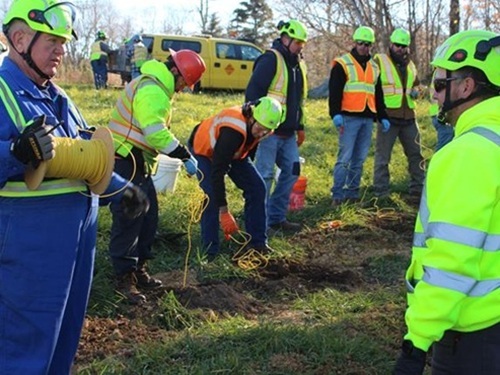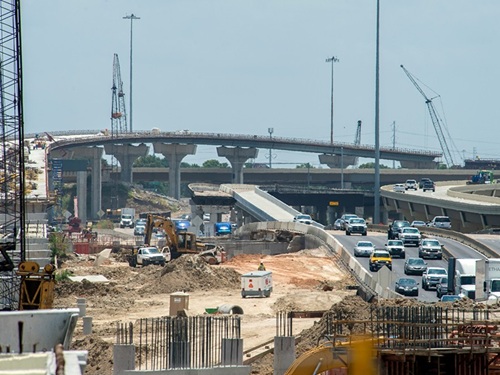A new report by the Texas A&M Transportation Institute or TTI outlines how Texas Department of Transportation projects over the last five years improved roadway safety while saving commuters nearly $1 billion worth of time and fuel costs; all despite an increase in number of miles traveled.
[Above photo by TxDOT]
According to a TTI analysis of the Top 100 Congested Roadways in Texas, even though the number of miles traveled on the road increased by 7 percent over the last five years, traffic delays in Texas are down 7 percent in that same time period – with commuters saving an estimated $915 million in time and fuel costs due to key TxDOT surface transportation infrastructure improvements.
“We can see that our projects are having a significant impact on our roadways, helping improve efficiency and connectivity across the state,” noted Marc Williams, TxDOT’s executive director, in a statement. “As our population and economy continue to grow, there’s a considerable need for more projects – and this report helps guide our work to areas that need it most.”

[Editor’s note: Multiple TxDOT employees recently received “Texans Caring for Texans” awards for everything from tornado response efforts to providing exemplary customer service.]
He noted that, across Texas, roughly half of the top 100 most congested road segments were under construction in 2023 amid a record-breaking number of active projects. Many of those projects received funding through Texas Clear Lanes; an initiative launched by Governor Greg Abbott (R) in 2015 to reduce traffic congestion in the state’s most populated areas.
TTI added that its findings show that enhancements to surface transportation infrastructure and evolving travel patterns are helping to manage roadway congestion as traffic demand grows.
“Major transportation investments across Texas, like those in the Texas Clear Lanes initiative and the hundreds of other projects across the state, are easing that burden and helping commuters save time and fuel as traffic levels rebound,” said TTI Senior Research Scientist David Schrank.
 States
States
NCDOT Staff Participate in ‘Explosive’ Technical Training
December 19, 2025 States
States

